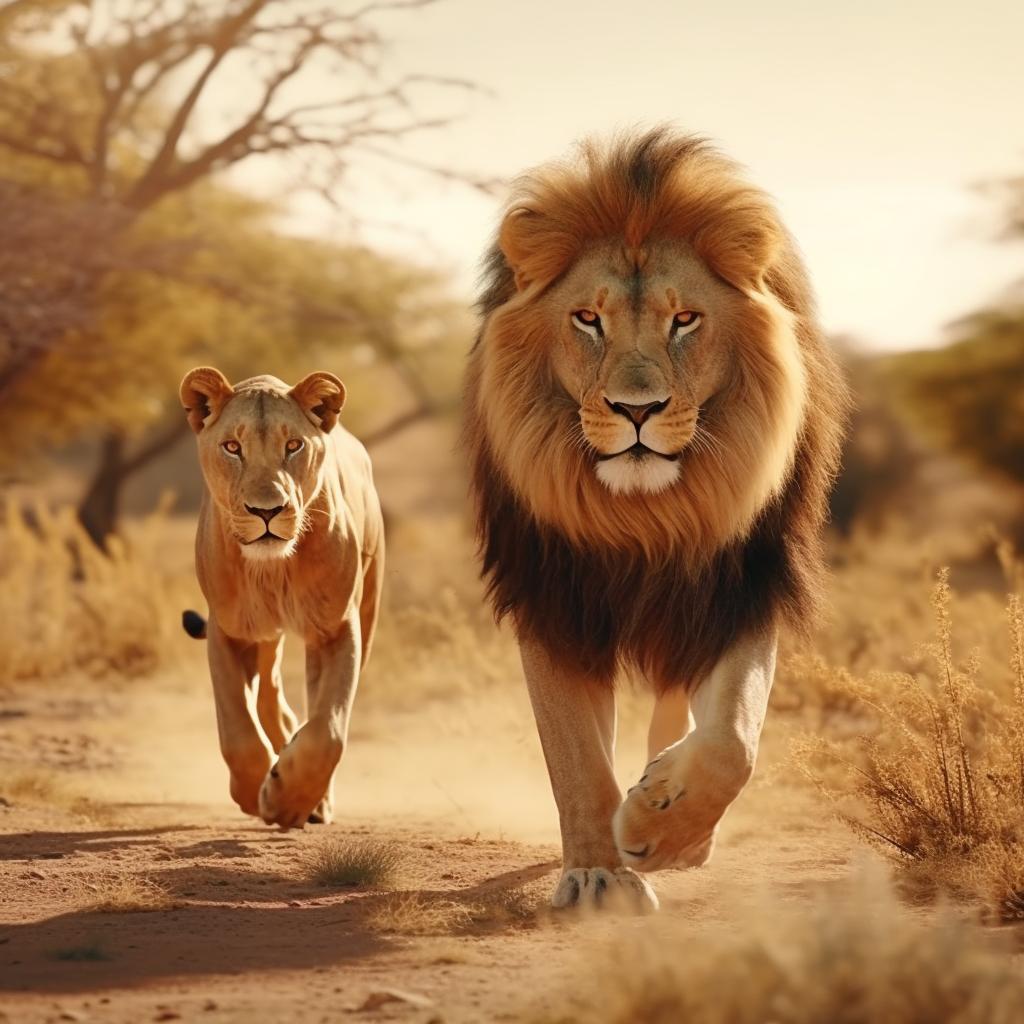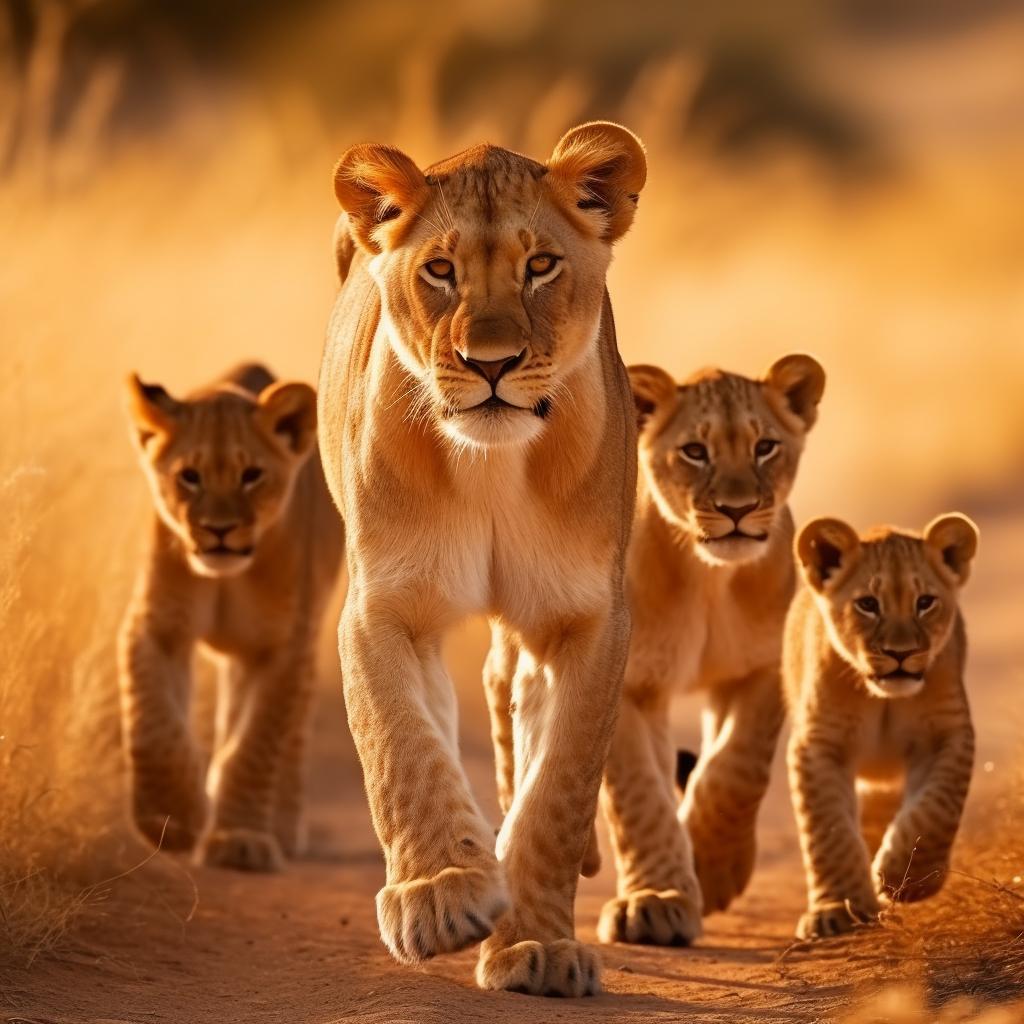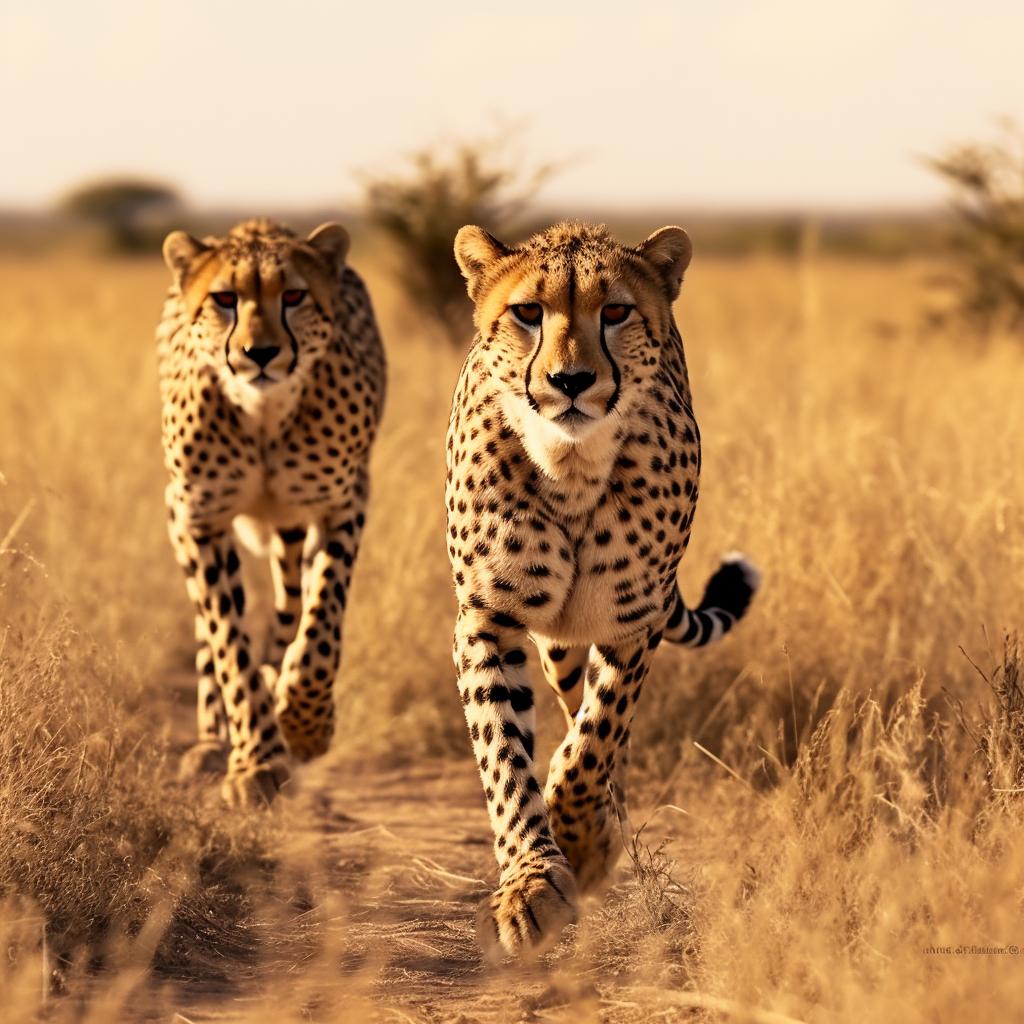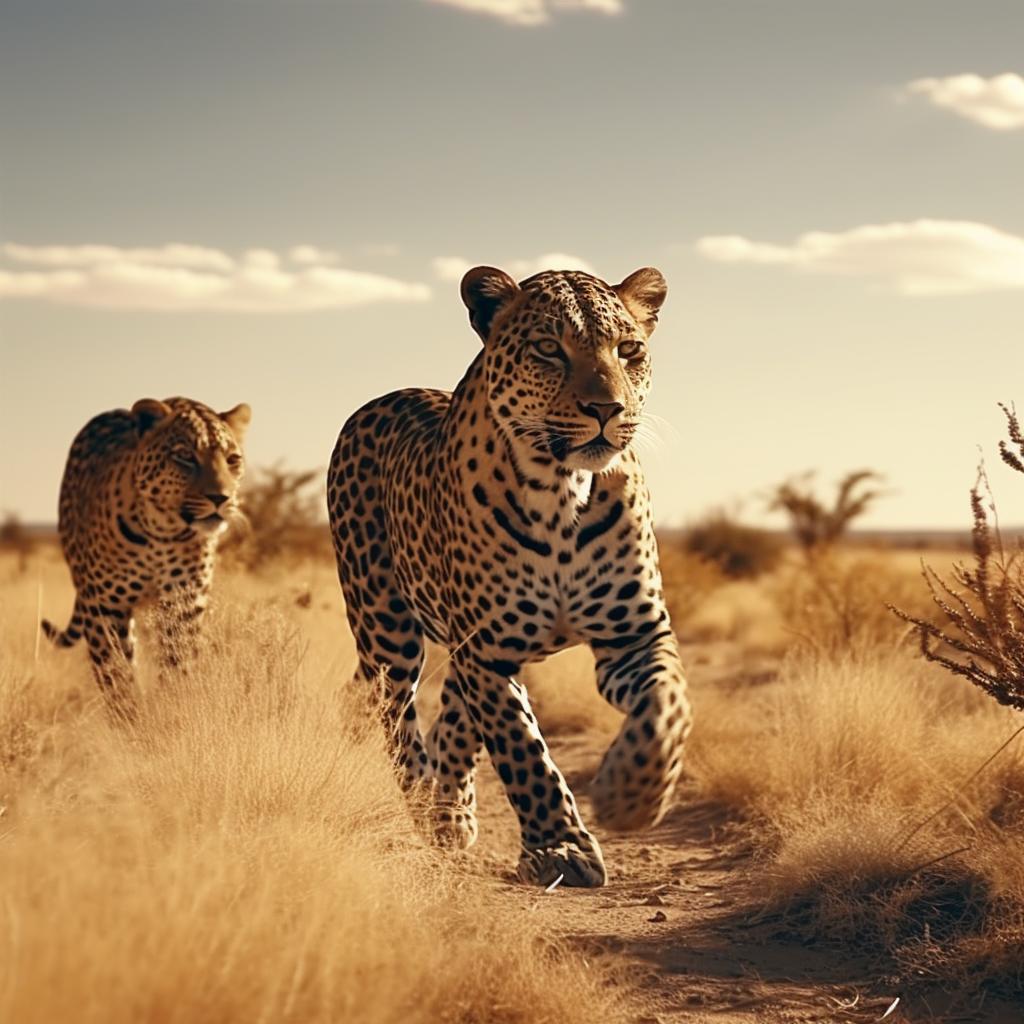Overview
Lions, the iconic rulers of the savannah, are the second-largest big cat species, with males growing up to 550 pounds (250 kilograms) in weight. Their majestic manes are a distinguishing feature, with variations based on age, genetics, and environmental factors. Social by nature, they form prides consisting of related females and a coalition of males.

When
The best months if you are planning a trip to see lions are June, July, August, September and October.
Where
The best countries for spotting lions in the wild are Kenya, Tanzania, South Africa and Botswana.
Diet
As apex predators, lions have a diverse diet, but their favourite food is often large ungulates such as zebras, wildebeest, and buffalo. Their strength and cooperative hunting tactics make them formidable predators, capable of bringing down prey.
Habitat
Lions primarily inhabit grassy plains, open woodlands, and scrub habitats across sub-Saharan Africa. They have adapted to various ecosystems, including savannahs, semi-arid regions, and even dense bushlands. Their ability to adapt to different environments is a testament to their resilience.
Best Countries To See Lions
Kenya
Tanzania
South Africa
Botswana

Best Time Of Year To See Lions
The dry season is often considered a favourable time for lion sightings in many regions. As water sources become scarce and vegetation thins out, lions are drawn to remaining waterholes and areas with higher concentrations of prey.
Dry seasons typically occur in different months depending on the location, such as winter months in Africa (June to October) or cooler months in other regions.
Where You Are Most Likely To See Lions
1. Maasai Mara National Reserve, Kenya: The Maasai Mara is renowned for its high density of lions and is particularly famous for the Great Migration, during which thousands of wildebeest and zebras cross the Mara River. This spectacle offers prime opportunities to witness lions in action as they capitalise on the abundance of prey.
2. Serengeti National Park, Tanzania: Serengeti National Park is a vast and diverse wilderness where lions thrive. The park's open grasslands and woodlands provide ideal hunting grounds for these magnificent predators. The Serengeti is also home to various lion research projects, offering unique insights into their behavior and conservation efforts.
3. Kruger National Park, South Africa: Kruger National Park is one of Africa's premier wildlife destinations, offering fantastic lion sightings. With its expansive size and diverse habitats, including grassy plains and riverine forests, Kruger provides a home to numerous lion prides. The park's well-developed infrastructure and experienced guides enhance the chances of lion encounters.
4. Okavango Delta, Botswana: The Okavango Delta is a stunning and dynamic ecosystem that supports a thriving lion population. This vast inland delta attracts wildlife, including prey species, making it an excellent habitat for lions. Exploring the delta by boat or on guided game drives offers unforgettable opportunities to witness lions in their natural environment.
5. Ngorongoro Conservation Area, Tanzania: The Ngorongoro Conservation Area, with its breathtaking Ngorongoro Crater, is a UNESCO World Heritage Site and an incredible place to spot lions. The crater's lush grasslands and abundant prey make it an ideal location for these majestic cats. Its unique setting also offers opportunities for stunning photographic opportunities.

